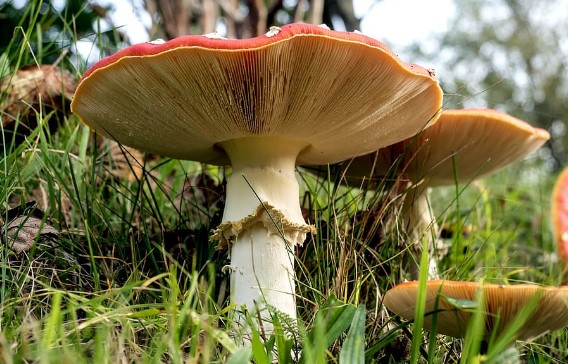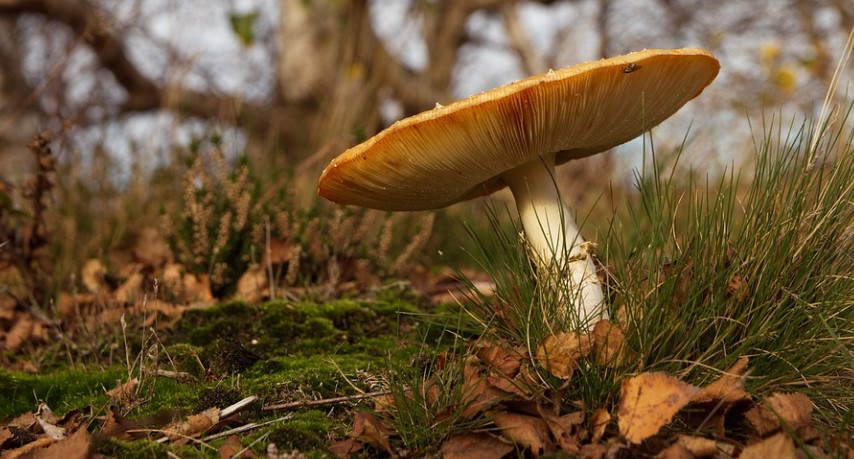There have been several research studies investigating the potential therapeutic benefits of Amanita muscaria. Here are a few examples. One study investigated the effects of ibotenic acid on neurodegeneration in an animal model of Alzheimer’s disease. The results showed that ibotenic acid was able to improve cognitive function and reduce inflammation in the brain, suggesting potential therapeutic benefits for Alzheimer’s disease.
Pain Relief
A study in rats found that muscimol, a compound found in Amanita muscaria, is a potent analgesic that can reduce pain without inducing sedation. The researchers suggested that muscimol may help treat pain associated with several conditions, including neuropathic pain and headaches.

Cancer Treatment
One study found that an extract of Amanita muscaria had cytotoxic effects on human breast cancer cells in vitro, suggesting potential use in cancer treatment. The researchers suggested that the mushroom may have the ability to inhibit tumor cell growth and induce apoptosis (cell death) in cancer cells.
Antibacterial Properties
A study found that Amanita muscaria has antibacterial properties that can inhibit the growth of several pathogenic bacteria, including Escherichia coli and Staphylococcus aureus. The researchers suggested that the mushroom’s antibacterial properties may have potential use in the treatment of bacterial infections.
Overall, these studies suggest that certain compounds found in Amanita muscaria may have therapeutic potential for a range of conditions. However, further research is needed to fully understand these potential benefits and determine safe and effective dosages. Additionally, the toxicity and potential for adverse effects of Amanita muscaria must also be taken into consideration before considering the use of the mushroom in a medical context. You can check also website about amanita muscaria for sale.
Physical appearance of Amanita muscaria
Amanita muscaria is a distinctive mushroom that has a characteristic physical appearance.
The cap of the mushroom is typically reddish-orange to yellowish-orange in color, and it can range in size from 5-20 cm in diameter. The cap is initially round and later flattens out, forming a convex or umbrella shape. The cap surface is smooth and can become sticky when wet.
The gills of Amanita muscaria are white and closely spaced, and they are attached to the stem. The stem is typically 10-20 cm long and 1-2 cm in diameter. It is white, fibrous, and often has a skirt-like ring around the upper part.
The base of the stem is bulbous, with a cup-like volva that may be partially or completely buried underground. The volva is typically white, and it has a sac-like appearance.
The mushroom’s appearance can vary depending on its age, the location where it grows, and other factors such as moisture and sunlight exposure. Therefore, it’s important to be careful when identifying edible mushrooms, as some poisonous mushrooms can have a similar physical appearance to Amanita muscaria.
Similar Posts From The Same Category:
- The Mystery Mushroom: Amanita Muscaria
- What is Lion’s Mane good for?
- Boost Your Pre-workout Energy with Cordyceps
- What are the Risks of Using Cyanocobalamin?
- Why You Need a Routine Ophthalmic Examination
